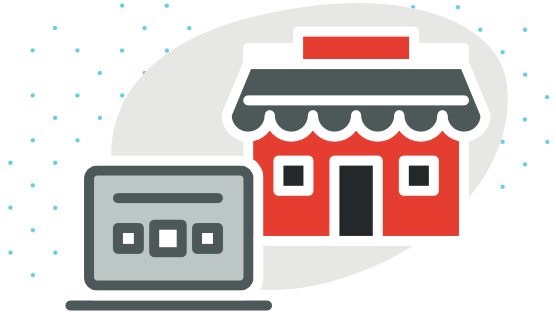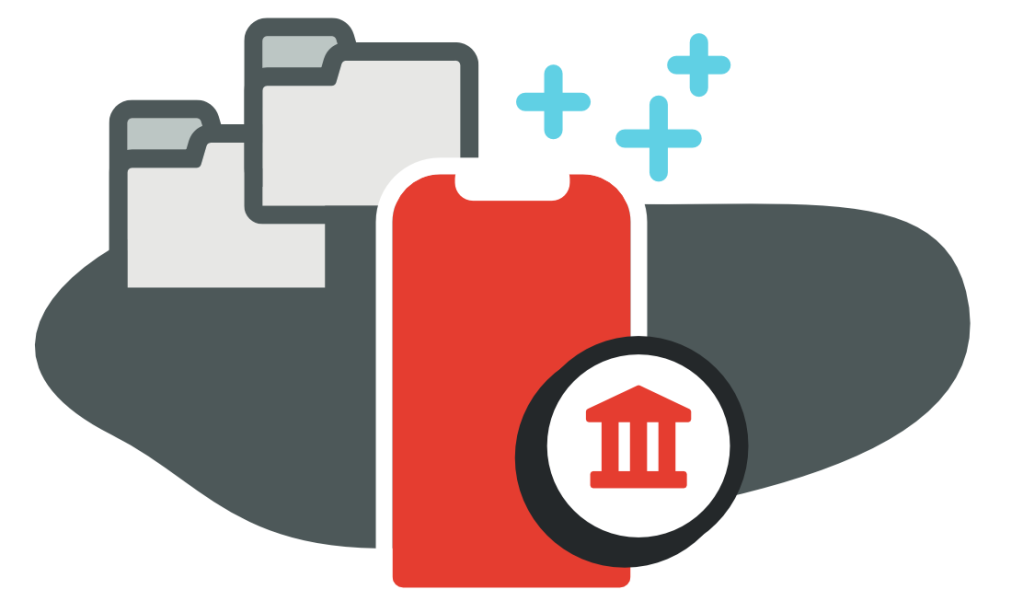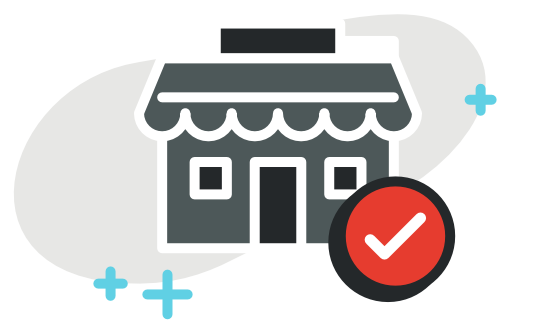How do I start my own business?
Table of Contents
There are many reasons why you might be thinking of setting up a business.
Maybe you’ve had a change in circumstances at work, or you’re finally taking the plunge after years of dreaming about it.
There were 5.94 million small businesses in the UK at the start of 2020, and more than five million people registered as self-employed. If they can do it, why can’t you? Starting a small business is absolutely within your reach, especially with the right planning. This article will help you figure out your first steps and satisfy the regulators along the way.
1) Decide on your business idea
It almost goes without saying, but until you come up with your business idea, it’s hard to get started.
This might be determined by your skills. If you’ve, say, been working as a writer or an electrician for many years, going freelance is a clear next step.
But you might also be planning to turn your passion or hobby into a business. If you’re a talented artist or cook, or an interior design fanatic, it’s important to think how this might translate into products or a service that wins customers.

Don’t worry if your idea doesn’t jump out at you from nowhere. Figuring out a unique selling point for your business can be tough, so it’s common to spend time brainstorming. Find out what people in your industry want, and if there are any problems or gaps in the market that you could fix.
You might have a great idea – now give it a name. There are many routes to take, but it’s hard to go wrong with something that’s unique, memorable, and reflects your values. You might also want to think about a name that will help find customers if you’re online. A memorable ‘pun’ name might work for a physical store, but it’s unlikely to help you get in front of customers using Google.
2) Do plenty of market research
It’s really important to do some market research at the beginning. Then you can understand who and where your customers are, what your competition is like, and how you’ll develop a working business model.
In some ways, your location and customers will depend on each other. If you’ll be providing a physical service, like repairs or beauty treatments, then you’ll be relying more on local customers.
For a business operating online – for example selling clothes or crafted items – perhaps the most important thing will be how you present yourself and your products. Will you need a website, or can you become an Amazon seller? Or, does it make sense to start with an online store like Etsy or Shopify?

Try to learn what your customer base will expect from you, then think about how your customers look for businesses like yours. It could be through word of mouth, or search engines, for example.
From there, you can start to get a picture of what the business is going to look like. For instance, how you’re going to stand out from competitors, how you’ll fulfil orders, and whether or not you’ll need physical space, like a store.
3) Figure out your budget
You know what you want to do and who you’re targeting, but how does that translate into a small and profitable business?
To answer this, it’s time to draw up a budget. Think about all the things you’ll need in order to get the business up and running, and what they will cost. You might have some of these things already, or you may have money set aside to get you going.
If you need a physical shop, then you need to budget for rent and utilities, such as electricity and internet. For online businesses, this will be replaced with costs to build and host a website, or to set up within an ecommerce site.
Think about the cost of equipment, such as tools, and whether you need a vehicle, which must be bought or hired and comes with ongoing costs for fuel and maintenance.
Also think about whether you’ll need to hire staff or outsource any services.
Don’t forget to plan a marketing budget. This can help grow your business and with social media at your disposal, it doesn’t have to break the bank. You could start small, for example having a logo created. Or you might start a Facebook or Instagram page with a small ad budget to connect with customers online.
Armed with market research and a thorough list of costs, you can now develop an idea of what to charge, and how many customers you’ll need to make a profit.
4) Get to grips with the rules and regulations
Understand the regulations that will apply to your business, including sector-specific rules. If you’re starting a food truck, for example, are you ready to meet health and safety requirements? You also have a series of responsibilities by law as an online seller, such as informing the customer of their right to cancel.

Explore what type of insurance you’ll need and have it in place before you get started. Some will be essential, such as auto insurance if you’re using a vehicle.
Having further cover in place could save your entire business if disaster strikes. Many insurers offer specialist policies to suit particular needs, from shops to home-based businesses, which could make your search a bit more straightforward.Learn more about other types of insurance for small businesses here.
5) Register your new business
When you’re confident in your plan and ready to go, it’s time to move on to registering a new business with HMRC.
If you’re self-employed, you can register as a sole trader. This means you keep all your profits after tax, but you’re personally responsible for any losses. It will also help if you’re planning to claim tax-free childcare.
To set up as a sole trader, simply register for self-assessment with HMRC. You then need to send a tax return every year, paying Income Tax and National Insurance after working out how much you owe. Preparing tax returns is made easy with Countingup. The business account and app comes with inbuilt accounting software that gives you live tax estimates all year, so you can confidently set aside the right amount.
If your annual turnover from sales reaches £85,000, you must register for VAT.
There are also certain rules around naming your business as a sole trader, so it might be wise to check these against the name you’ve come up with. As long as the name is unique, not offensive, and you haven’t incorrectly added ‘ltd’ at the end, you should be ok.
On that note, you could also form a limited company or a partnership. A limited company allows you to separate your personal and business finances, but it’s more difficult to set up. As the Director, you’ll also have more responsibilities around reporting and management. Plus, you’ll have to pay Corporation Tax.
A partnership, as you’d guess, allows you and another person to run the business together. Partners will own a certain portion of the business, splitting the revenue accordingly and each separately paying tax based on their own share.
6) Develop good record-keeping habits from the get-go
You want to fully focus on securing your first customers and growing your reputation. But this shouldn’t be at the expense of developing good bookkeeping habits. The last thing you want to realise is there are months’ worth of receipts you haven’t been recording properly.
Getting on top of your bookkeeping from day one will help you to stay compliant and save you lots of time in the long run,
Securing your first customer is a wonderful feeling that you’ll never forget. But first, think about how you’re going to be paid and how you can keep a record. It feels more straightforward for physical or online stores that sell their product and issue a receipt that can be matched to the transaction.

But for services like copywriting or plumbing, you need an easy way to record that you’ve billed a customer so it isn’t forgotten about. The most commonly used is an invoice, which doesn’t have to be complicated. It can simply show the customer name, the work carried out, a simple cost calculation, and your account details.
This will set you off in the right direction when it comes to keeping your records on track. Use the Countingup app to create professional invoices instantly, and even send them on the go.
As a registered sole trader, you’re required to compile and keep meticulous business records and to be able to show them to HMRC if asked. You must keep these records for five years, or six years for a limited company.You could save time and money on bookkeeping by opening a separate business account, simplifying how you keep track of your business’ cash flow. Choose a business account with automated bookkeeping features and invoice matching – it will take a big chunk of financial admin off your plate.
7) Learn the tax basics
You don’t have to be a tax pro to start a small business, but it’s important to have an understanding of the basics when it comes to accounting if you want to avoid penalties from HMRC.
Hiring an accountant could help you, but many sole traders will feel they can manage – particularly with the help of accounting software for small businesses.

When picking an accounting method, many choose to record income and expenses by the date they invoiced or were billed.
Taxes are paid in arrears, so for example with any profit you make in the 2020/21 tax year, the tax will be due in January 2022. A lot can happen in between, so keeping good records of your transactions is vital in order to accurately work out profit or loss and avoid costly mistakes on your tax return.
It’s important to account for all sales, income, expenses, and VAT records if applicable. Keep proof of any receipts, till rolls, invoices or bank statements. The positive of doing this is that it will save you (or your accountant) time and money, and make sure you don’t pay more tax than you need to. Many expenses will be classed as ‘allowable expenses’. They can be deducted from your profits, which will lower your tax bill. These can include marketing costs, such as running a website, office costs including stationery or the phone bill, and various others.
Meeting these requirements, and making sure you don’t pay too much tax, will have a positive impact on your business. You just need to make sure to stay on top of it, especially when you’re new to it all and your focus is mostly on your new venture.
Thankfully, there’s a business current account with built-in accounting software that can simplify your business admin. Countingup is designed for small businesses. With automated bookkeeping features and simplified tax returns, you can focus on making your dream venture a success. Sign up today and get three months free.




